After testing the Eley Subsonic HP ammo and finding the results I did, it is only natural for me to continue to test my other preferred squirrel rounds. That leads me to the round I had my CZ 452 American Suppressed rifle doped for last year. The SK Subsonic Hollow Point brought plenty of squirrels out of the trees last year for me. Now that my suppressed rifle has been bedded it prefers Eley Subsonic. So having another CZ 452 recently pillar and glass bedded, I chose it to get dope for the SK Subsonic HP.
SK Subsonic, if you’ve ever handled any SK, has an almost Vaseline type lube over the entire cartridge. With warmer weather the lubricity increases, making the round very slippery, and with colder weather the lube has more of a “tacky” feel to it. I have heard, and plan on testing, that SK rounds are susceptible to colder temperatures. Somewhere under the 45° F your grouping can open up. All you squirrel hunters know that these temperatures are ones you will be hunting in. This is why some hunters keep there magazine in there pocket while hunting to keep the temperature of the round warm, to keep accuracy consistent. I had a squirrel last season that I was firing at in sub 45° weather, and missed a 40 yard, rested, shot that should have clearly been a hit. It took 5 rounds to finally put that squirrel in the bag, and I think it had something to do with ammo temperature.
As with the last testing, I weighed out a box of the SK Subs and found the most consistent weight to be 51.9 grains. As you’ll see that doesn’t mean it will be the most consistent, which still baffles me.
I set up to shoot off of my table with a bipod and squeeze socks in the rear of the rifle. I’ve been having pretty good results shooting this way. If you are shooting with a bipod you certainly don’t want it on a hard surface. I’ve learned this recently, and have been using a bipod incorrectly. When the rifle is fired the vibrations that travel through the bipod need to dampened into something, whether that be the ground or something cushioned. You’ll also see from this ammo test, to every future ammo test that a chronograph is a key element in those head scratching flyers!
Weather for the time of shooting, for August, was unusually cool at 74° F. Skies were overcast, 94% humidity, and a slight northeast wind of 3 mph. For my first group I decided to start with the lower weights and I lumped them together, as there were only three rounds. Shots were as follows.
1. 1050 (51.0)
2. 994
3. 1021
I would expect a flyer in this group as the weights were lower, but I would have thought it would have been the 51.0 grain shot as opposed to the 51.2. The next group 51.4 grain:
1. 1055 low right shot (bad technique on my part)
2. 1035
3. 1000
4. 1002
5. 1059 center green ring
I made adjustments during this group (51.5) to bring the group to the center of the target. In hindsight I probably should have re-shot this group as the adjustments made don’t give a true testament to the accuracy.
51.5 grain group:
1. 1021
2. 1039 (adjustments made after this shot)
3. 1048
4. 1059
5. 1043
The 51.6 grain group was one of the most accurate groups I fired. It’s the kind of group you have hopes of firing every time you settle in behind your rifle.
1. 1050
2. 1024
3. 1043
4. 1028
5. 1047
The 51.7 grain group was another good one except for one pesky flyer.
1. 1022
2. 1053
3. 1053
4. 1045
5. 1054
The 51.8 grain group didn’t turn out as I expected, but that is what testing is about. Shot number four I call a flyer, but it was on the hot side of things.
1. 1055
2. 1023
3. 1040
4. 1084
5. 1030
Remember the most consistent weight was 51.9 grains. Who would have thought there would be a flyer in this group? Certainly not me. Well so much for that. Otherwise the group was dime sized. Again without the chronograph, I would have been doubting my technique.
1. 1043
2. 1055
3.
4. 1047
5. 1054
52.0 grain
1. 1004 (surprised this wasn’t a flyer?)
2. 1042
3. 1045
4. 1041
5. 1027
52.1 grain group was another dime sized grouping. A group any squirrel would be scared of.
1. 1056
2. 1045
3. 1036
4. 1046
5. 1048
The last weight group was 52.2 grains. This was my most consistent feet per second group, however I pulled one shot that made the group go from dime sized to nickle size.
1. 1053
2. 1053
3. 1053
4. 1053
5. 1053 (shot I pulled)
6. 1053 (put this round in the group in frustration from making a great group not so good)
I’d have to say after using this round exclusively all last squirrel season that it is an excellent choice in the realm of subsonic choices. I have to take the time this fall to test the cold weather theory for myself. When I do I’ll be sure to report back here. If you are in the market for a quality subsonic round, that at the moment, I would say is a close second to Eley SS HP, in both cost and accuracy, look no further than SK Subsonic.
[phpzon keywords=”Shooting Chrony” num=”3″ country=”US” trackingid=”squihuntjour-20″ templatename=”columns” columns=”3″ paging=”true”]

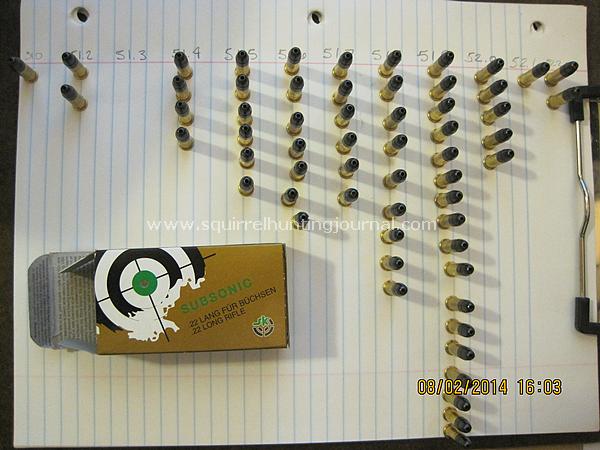
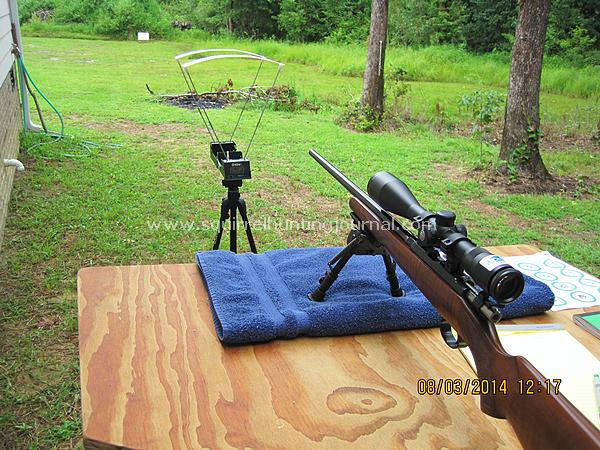
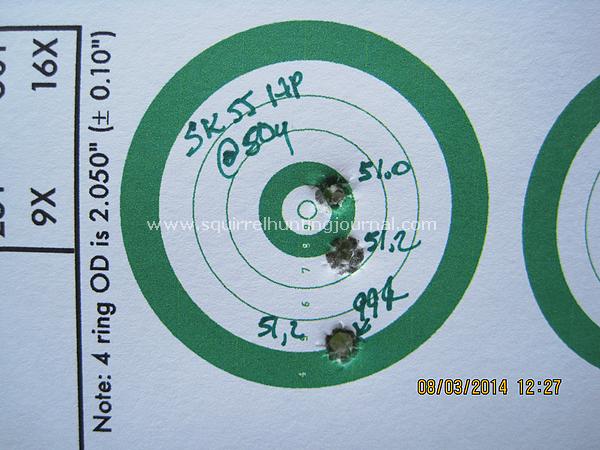
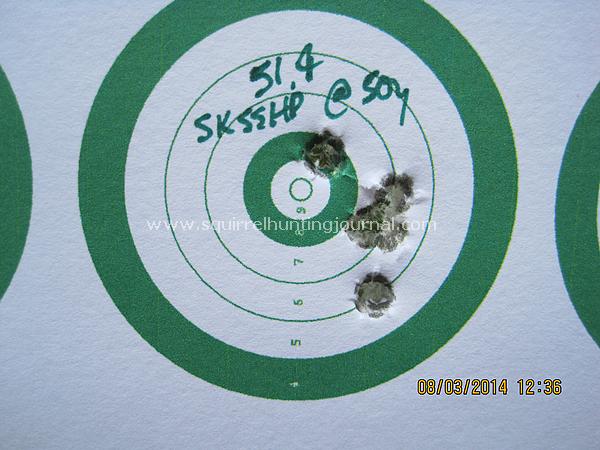
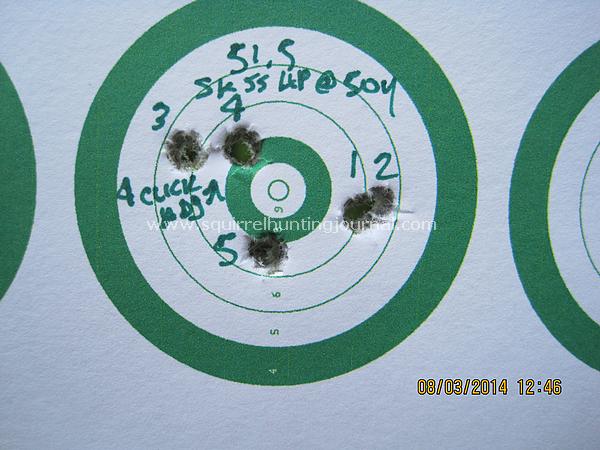
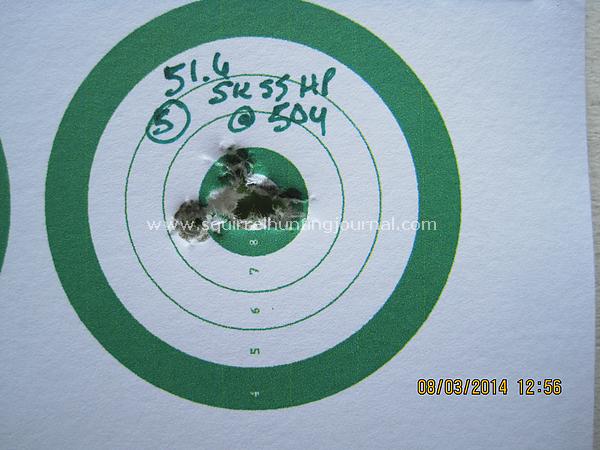
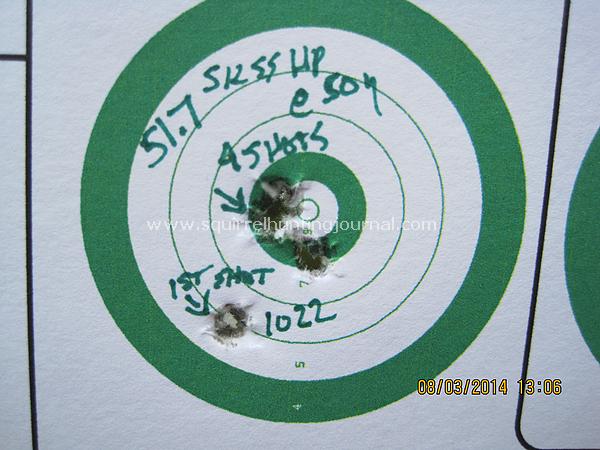
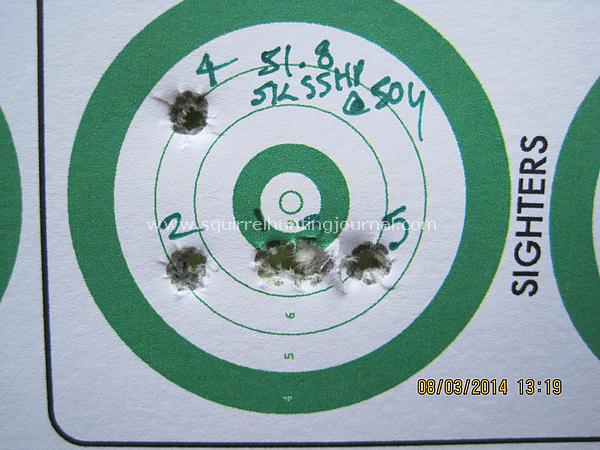
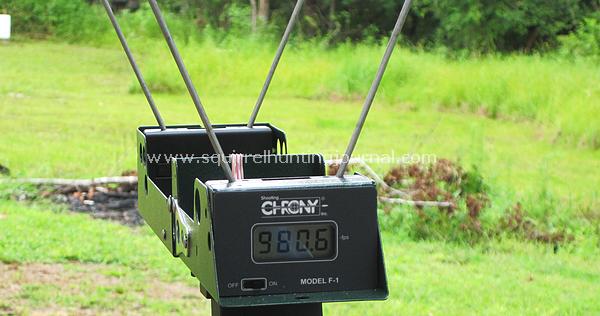
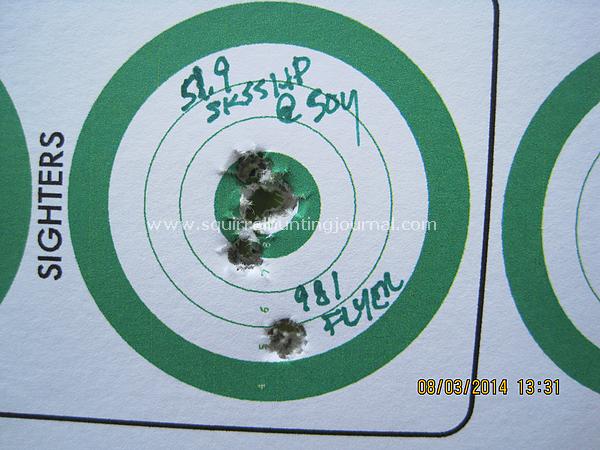
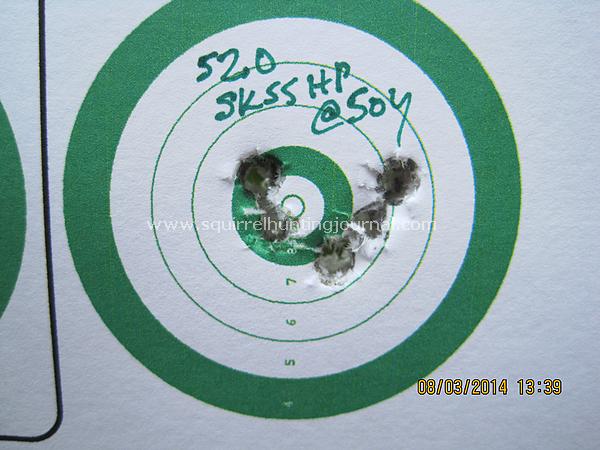
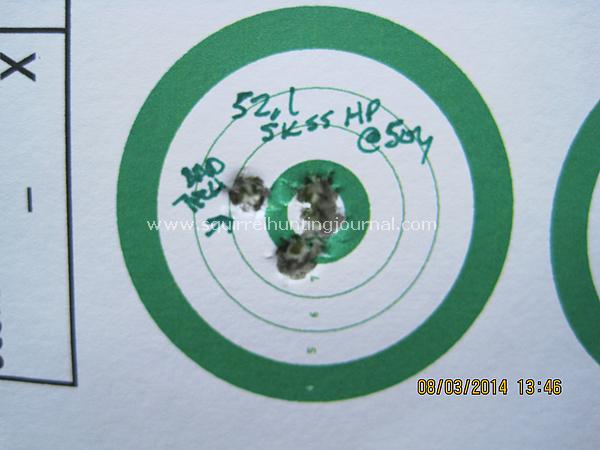
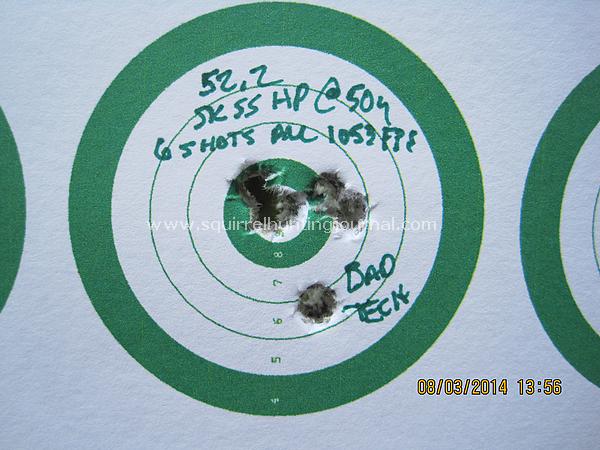



looks like any velo much above 1053 fps or below 1030 fps and your gonna get flyers. looks like the sweet spot is around 25 or so fps. i like sk subs along with eley subs but my goto with pretty much all of my cz’s is winchester subsonic hp’s 40 grain. guess my cz’s are a “cheap date” so to speak as i think i paid about $3.50 per 50 round box whereas the eley and sk were anywhere from $8-$10/box of 50. i saw where winchester is coming out with a new 42 grain MAX subsonic. i’d like to get my hands on some of that for testing.
keep up the testing bro and maybe work in the 16″ suppressed american and some winsshp ammo,
eddie
Winchester subsonic can sometimes be problematic for me, and then shoot a really nice group. It’s currently my Scout’s round of choice, but that’s the only rifle I have doped for that round.